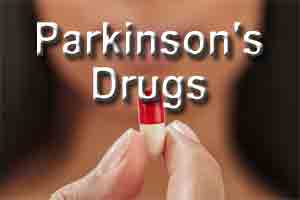- Home
- Editorial
- News
- Practice Guidelines
- Anesthesiology Guidelines
- Cancer Guidelines
- Cardiac Sciences Guidelines
- Critical Care Guidelines
- Dentistry Guidelines
- Dermatology Guidelines
- Diabetes and Endo Guidelines
- Diagnostics Guidelines
- ENT Guidelines
- Featured Practice Guidelines
- Gastroenterology Guidelines
- Geriatrics Guidelines
- Medicine Guidelines
- Nephrology Guidelines
- Neurosciences Guidelines
- Obs and Gynae Guidelines
- Ophthalmology Guidelines
- Orthopaedics Guidelines
- Paediatrics Guidelines
- Psychiatry Guidelines
- Pulmonology Guidelines
- Radiology Guidelines
- Surgery Guidelines
- Urology Guidelines
Sublingual apomorphine beneficial for off episodes in Parkinson's disease: Lancet

USA: Apomorphine sublingual film is efficient in improving motor scores during off-episodes in Parkinson's disease patients as compared to placebo, according to a recent study published in Lancet Neurology.
Parkinson's disease, a nervous system disorder that affects movements, is characterized by characterized a lack of dopamine -- a signaling molecule in the brain, which leads to tremors, stiffness, and slowness. One approach for treating the disease is to replace the missing dopamine but it is too large a molecule to cross the blood-brain barrier. So, instead, a dopamine precursor called levodopa that can enter the brain is used. Levodopa is converted into active dopamine inside the brain easing motor problems in people with Parkinson’s.
The period during which levodopa has a positive effect on Parkinson's symptoms is called one-time but once the medication stops working, a period called off-episode starts where symptoms recur. So, levodopa should be given in a way to prevent off-episodes between doses. However, with prolonged use, the body's ability to convert levodopa into dopamine decreases lowering the efficacy of the medication. This can be compensated by increasing the dosing frequency or increasing levodopa dose. High-dose can cause dyskinesia, or uncontrolled and abnormal movements. Only two approved treatment options are available for the treatment of off-episodes: inhaled levodopa (Inbrija), which earned FDA approval late last year, and subcutaneous apomorphine (Apokyn).
Apomorphine injection is in a class of medications called dopamine agonists. It works by acting in place of dopamine, a natural substance produced in the brain that is needed to control movement.
Warren Olanow, Icahn School of Medicine at Mount Sinai, New York, NY, USA, and colleagues assessed the safety and efficacy of apomorphine sublingual film as an on-demand therapy for off episodes in patients with Parkinson's disease.
The study involved 109 patients who have 2 hours or more of off time per day with a predictable morning off periods, were responsive to levodopa and were on stable doses of anti-parkinsonian medication. The mean age of participants was about 63. Patients were randomized to either apomorphine sublingual or placebo. In total, 34 of 54 patients receiving apomorphine and 46 of 55 receiving placebo completed the study.
Key findings of the study include:
- Least squares mean (SE) change from predose to 30 min post-dose in MDS-UPDRS part 3 score at week 12 was −11·1 (SE 1·46) with apomorphine sublingual film and −3·5 with placebo (difference −7·6, SE 1·96).
- Mild-to-moderate oropharyngeal events were the most common side-effect, reported in 17 (31%) of 54 patients receiving apomorphine sublingual film and in four (7%) of 55 patients receiving placebo, leading to treatment discontinuation in nine (17%) patients treated with apomorphine and in one (2%) patient treated with placebo.
- Other treatment-emergent adverse events were transient nausea (in 15 [28%] patients receiving apomorphine sublingual film), somnolence (seven [13%]), and dizziness (five [9%]).
- Orthostatic hypotension, syncope, dyskinesia, hallucinations, prolongation of the QT interval, and impulse control disorders were infrequent (prevalence ≤2% of all patients) or did not occur.
- One patient treated with apomorphine sublingual film (with known cardiac risk factors) had a fatal cardiac arrest.
"Although nearly a third of patients discontinued treatment primarily because of oropharyngeal side-effects, apomorphine sublingual film provided an efficacious, on-demand treatment for off episodes for most patients with Parkinson's disease in this trial. The long-term safety and efficacy of apomorphine sublingual film are currently being investigated," concluded the authors.

Disclaimer: This site is primarily intended for healthcare professionals. Any content/information on this website does not replace the advice of medical and/or health professionals and should not be construed as medical/diagnostic advice/endorsement or prescription. Use of this site is subject to our terms of use, privacy policy, advertisement policy. © 2020 Minerva Medical Treatment Pvt Ltd